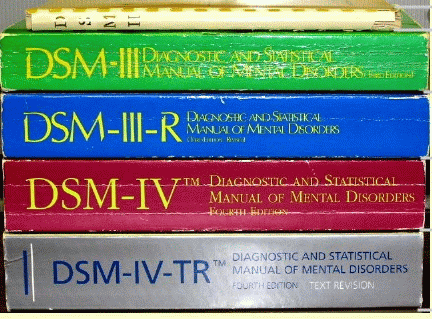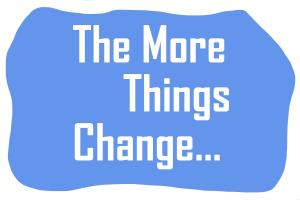Almost a year ago, I blogged about results from field trials of the soon-to-be-released, fifth edition of the Diagnostic and Statistical Manual of Mental Disorders. Turns out, many of the diagnoses in the “new and improved” version were simply unreliable. In fact, the likelihood of two clinicians, applying the same criteria to assess the same person for the two most common mental health conditions—anxiety and depression—and agreeing, was worse than it was with DSM IV, the ICD-10, or the DSM-III!
The question of validity, that is how well the diagnoses relate to real world phenomena, has never been addressed empirically in any edition. Essentially, DSM is a collection of symptom clusters, not too dissimilar from categorizing people according to the four humours—and, it turns out, about as helpful in determining the appropriate or likely outcome of any treatment provided.
Despite these serious shortcomings, the volume exerted tremendous power and influence over research and practice for the last three decades. Nearly all graduate programs teach it, research is organized around its content, and insurance companies and payers (including the Federal government) demand it for reimbursement. In short, everyone acted “as if” it were true—that is, until last week when NIMH Director, Thomas Insel, announced the organization was abandoning the DSM. As if having woken up from a thirty-year- nap the reason given was the volume’s lack of validity! Really?
The day the announcement was made, I received a bunch of emails. Most of the writers were elated. They knew I’d been critical of the volume for many years. “Finally,” one said, “a return to sanity.” My response? Not so fast.
To begin, DSM is not going away any time soon. Sorry, but if you want to be paid, keep your trusty copy nearby.
More troubling— if you read the fine print—NIMH is promising a better system, based on “a new idea everyone should welcome.” Just what is that idea? Mental health problems are biological in origin. To achieve better outcomes, NIMH funded researchers need to map the “cognitive, circuit, and genetic aspects of mental disorders” so as to identify “new and better targets for treatment.” Insel calls it, “precision medicine.”
Now, I don’t know about you, but the new idea sounds a heck of a lot like the old one to me! Psychiatry’s biological bandwagon blew into town last century and has been playing the same tune ever since. Remember the “dexamethasone suppression test” for differentiating endogenous from non-endogenous depression? How about the claims made about Xanax in the treatment of panic or the “new” anti-psychotics? There’s always prefrontal lobotomy which like the DSM, proponents continued to use and promote long after its lack of efficacy and brain disabling side effects were known. Heck, the originator won a Nobel Prize!
As far the promise of something better is concerned, history should chasten any hope one might feel. Honestly, when was the last time the field failed to claim significant progress was being made? Each new treatment approach is pitched as a vast improvement over “old ideas.” CBT is better than psychodynamic, specific is better than eclectic, evidence-based treatments are better than routine clinical practice, and so on—except none of these widely promulgated notions holds empirical water.
If “news” = new + different, then the NIMH announcement, like so much of what you find on TV and other social media, is definitely not news. It’s more of the same. Precision medicine in mental health is: 90% promise + 10% hyperbole, or marketing.
Here are a couple of newsworthy facts with immediate implications for mental health policy, practice, and research:
- Treatment works. Evidence gathered over the last four decades documents that people who receive therapy are better off than 80% of those (with the same problem or concern) as those without the benefit of treatment.
- A majority of potential consumers (78%) cite “lack of confidence” in the outcome of treatment as a barrier to seeking help from a mental health professional.
- Tracking a consumer’s engagement and progress during treatment enables clinicians to tailor services to the individual, resulting in lower costs, fewer drop outs, and as much as three times the effects!
Just a thought—if we really want to step into the future, rather than geneticists, neurologists, and radiologists perhaps the field could start by listening to consumers. That’s exactly the point Ernesto Sirolli made at a recent TED talk. If you haven’t seen it, here it is:





.png)
.jpg)
